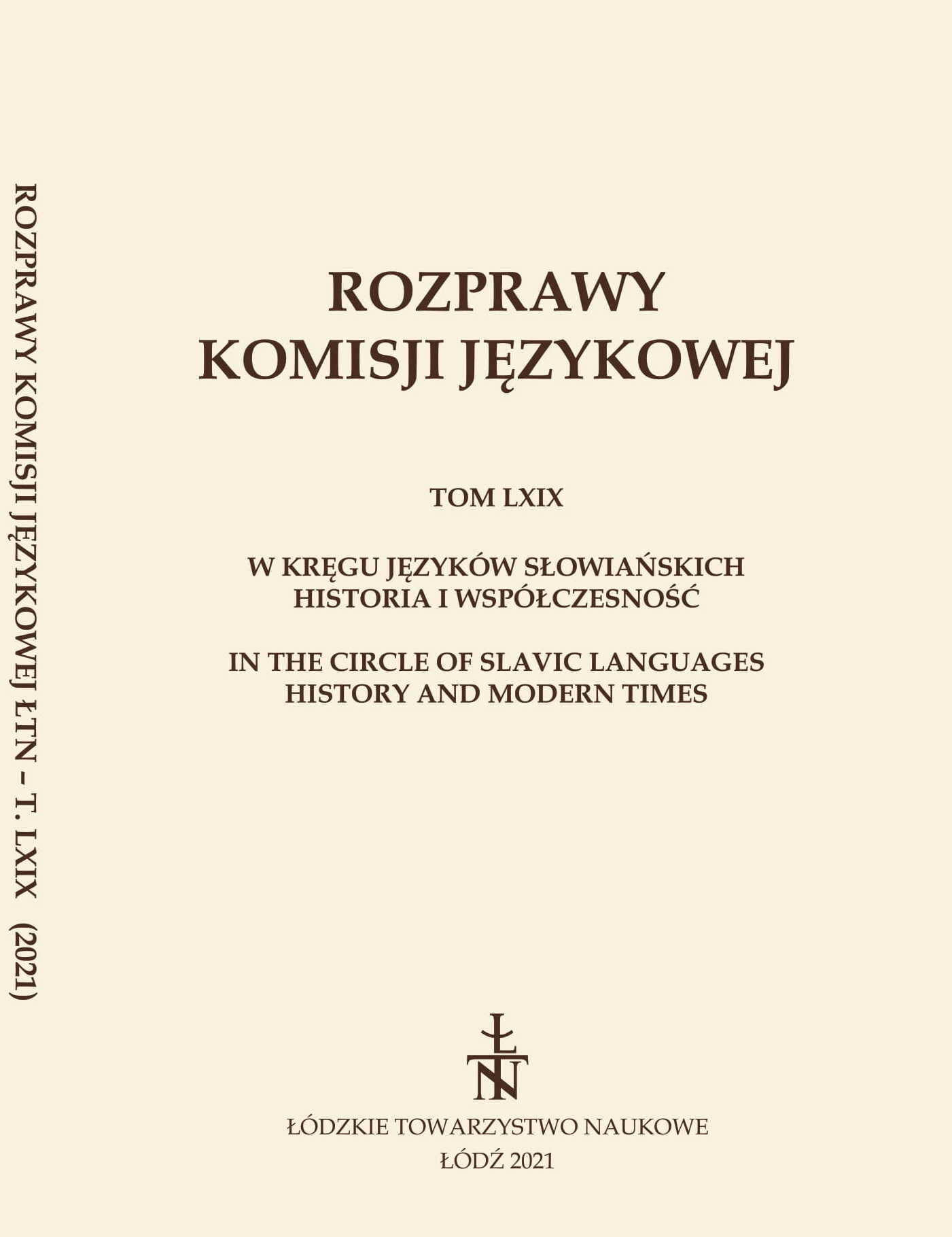The Imperative Mood in ‘Prosta Mova’ Clerical Manuscripts from the 16th Century
DOI:
https://doi.org/10.26485/RKJ/2021/69/9Keywords:
imperative mood, modality, ‘prosta mova’, Tyapinsky’s Gospel, the Peresopnytsia GospelsAbstract
Повелительное наклонение в конфессиональных «простомовных» памятниках XVI века
The article studies the functions of imperative forms in ‘prosta mova’, the written language of The Grand Duchy of Lithuania. The corpus we addressed consists of two clerical texts, V. Tyapinsky’s Gospels (1580) and the Peresopnytsia Gospels (1556–1561). Comparative textual research demonstrates the Slavic interferences which had a significant impact on the genesis of the imperative in ‘prosta mova’. The variability of imperative forms is primarily associated with the language norm in ‘prosta mova’ which was not fully established by the XVI century and the peculiarities of translation (influence of the original text or the idiolect of scribes). We also present summary tables of verbs forms for various manuscripts and a table with the restored paradigm of the imperative, indicating the competitive synthetic and analytical verb forms.






